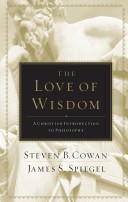Putting Jesus in His Place: the Case for the Deity of Christ.
By Robert Bowman, Jr. and J. Ed Komoszewski. Kregel, 2007: 392 pages.
“But who do you say that I am” (Matt. 16:15)? Arguably the most important question one must face, Jesus forces his hearers to contemplate his divine identity. That Jesus is “begotten of the Father as only begotten, that is, from the essence of the Father, God from God, Light from Light, true God from true God” (Nicene Creed) is absolutely central to the Christian faith. It is, however, a widely rejected belief. For example, John Dominic Crossan, former co-chair of the infamous Jesus Seminar, defines references to Jesus as the “Lamb of God” as “symbolic…figurative…metaphorical.” Similar denials may be found in John Hick’s The Myth of God Incarnate.
In response, Robert Bowman Jr., manager of Apologetics and Interfaith Evangelism for the North American Mission Board, and J. Ed Komoszewski, founder of Christus Nexus and Director of Reclaiming the Mind Ministries, have written the clearest, most comprehensive and convincing case for the deity of Christ available. Though concerned to demonstrate Christ’s divinity from the New Testament, the authors are equally concerned to equip their readers to remember the material. They thus employ their innovative HANDS acronym (as they say, Jesus shares the HANDS of God), organizing the biblical teachings into five corresponding categories. Read the rest of this entry »




 Posted by Clinton
Posted by Clinton  For those of you who have not yet heard, Barack Obama has chosen Evangelical(!) pastor Rick Warren to deliver the invocation at the Presidential inauguration in January. I must admit that I respect this move by Obama. Whatever his motivations may be, he is taking a lot of heat from liberals and this is an intentional move (the way I see it) to work with people that on issues such as abortion and homosexuality often disagree with him. Let us hope this spirit of collegiality persists. See
For those of you who have not yet heard, Barack Obama has chosen Evangelical(!) pastor Rick Warren to deliver the invocation at the Presidential inauguration in January. I must admit that I respect this move by Obama. Whatever his motivations may be, he is taking a lot of heat from liberals and this is an intentional move (the way I see it) to work with people that on issues such as abortion and homosexuality often disagree with him. Let us hope this spirit of collegiality persists. See 


